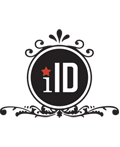When running a business, your website is like your home base. In addition, your website is the resource that provides customers with information about your services. For that reason, you need to keep it secure because it helps you gain business for your company. But how do you protect websites against hackers? Let’s get into that question. The answer is multifaceted.
Most websites are built on the common WordPress platform. WordPress is secure in general. However, you can do several things to ensure your website is even safer against hackers and malware.
How Do You Protect Websites Against Hackers?
6 Steps to Basic WordPress Security
1. Keep Up With the Latest WordPress Updates
WordPress automatically installs minor updates, but you’ll have to manually install the major ones. These updates are an important factor when it comes to keeping your website secure and stable. For that reason, watch for any notifications of a needed update.
One thing to watch out for: updating WordPress can sometimes break plugins that aren’t compatible with the new WordPress version. Talk to your website developer to make sure you’re in the clear before updating WordPress.
2. Secure Passwords and Usernames
The most common form of hacking is carried out using stolen passwords and/or usernames. For that reason, only use strong phrases that are unique to you and your website to lessen the chances of a potential hack. For example, “admin” is not a good username – in fact, it’s the first word a hacker will guess. Use secure credentials not only for your WordPress website, but also for your
- File transfer protocol (FTP) account
- WordPress hosting account
- Business and personal email accounts
- Other important databases
3. Avoid Shared Hosting
Taking part in a shared hosting plan opens the risk of cross-site contamination. This results in a hacker using a neighboring website to attack yours. However, finding a singular, secure hosting service will protect your website and your data.
At Interactive ID, we use VPS (virtual private server) hosting for our clients. It’s a virtual environment that gives you your own private server within a larger server. Like renting an apartment in a building, you benefit from the security of the “building” as a whole and are also insulated against intrusion from other websites.
4. Install a Backup Solution
No matter how secure a website is, there’s always a chance something might go wrong. Luckily, installing a backup solution allows you to restore your website almost immediately if something were to ever happen. Keep in mind that in order to take advantage of this security feature, you’ll need to regularly perform full-site backups and save them in a remote location.
For our website maintenance clients, we perform 20+ backups each month. We’ve also never had a client lose data.
5. Enable a Firewall
A firewall blocks any suspicious traffic before it even reaches your website. As a result, only genuine users are able to reach your page. While every firewall plugin is different, most perform the same basic functions:
- Deny bot access
- Block scanning tools and spam requests
- Stop evasion attempts
- Identify blacklisted IP addresses.
6. Change Your Site to SSL/HTTPS
Secure Sockets Layer (SSL) is a data encryption model that makes it harder for hackers and bots to find valuable information. Once you enable SSL, your website will use HTTPS (the “S” stands for “Secure”) instead of HTTP. Many hosting companies offer free SSL certification for your website.
Plugins for Your Website’s Safety
In addition to the above security steps, installing the right plugins is one of the most important things you can do to keep your website safe. These plugins act as a monitoring and inspection system that keeps track of all website action. Here are two plugins that we highly recommend:
WordFence
This plugin caters best to websites needing security rather than spam prevention. WordFence offers:
- Login security controls
- Centralized security management
- A 24/7 crisis response team
- Malware scans
- Two-factor authentication
- The WordFence firewall
ReCAPTCHA
This plugin works best with websites with heavy interaction levels, such as online shopping businesses. ReCAPTCHA works to:
- Prevent online bots from compromising your site
- Prohibit any spam activity that may interfere with regular traffic
- Remove any irregular links and comments found on your page
- Filter out any automated traffic
Call Us Today
Do you need extra assistance in keeping your website secure? It’s time to stop asking, “how do you protect websites against hackers?” and time to contact Interactive ID to get started! Our company offers monthly website updates, hacked website recovery, annual PCI compliance checks, daily automated website backups, free SSL services, and also DDOS attack protection. Call us today at (423) 508-0251 to receive quality website protection.


